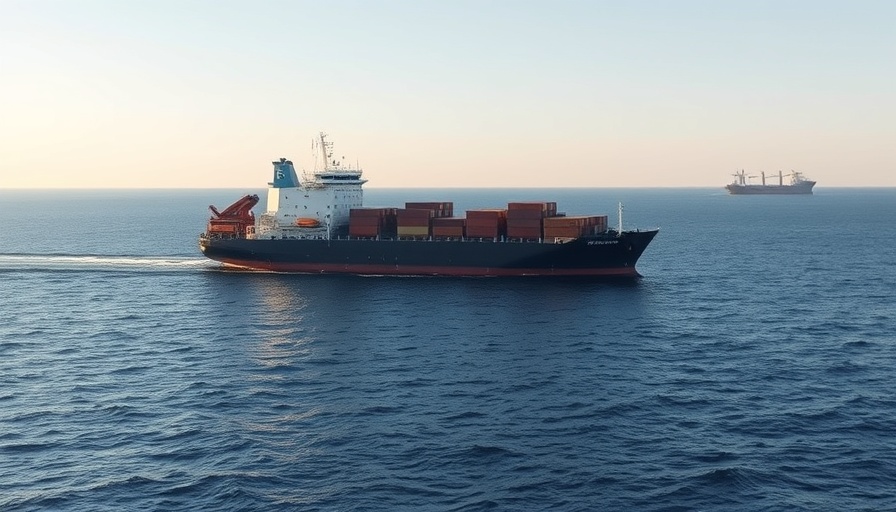
Exploring the Impact of Rising Insurance Costs for Shipping
The Strait of Hormuz, a critical maritime corridor, has long been a focal point for global trade. With an estimated 20% of the world's oil passing through this narrow passage, any disruptions here can have significant implications for international markets. Recently, there has been a notable spike in insurance prices for ships traversing this route. Such increases are primarily driven by geopolitical tensions and heightened risks associated with shipping in the region, which should raise concerns for franchisors relying on supply chains that connect global markets.
Why Insurance Costs Are Rising
Insurance costs are not arbitrary; they are reflective of risk assessments made by insurers. In the context of the Strait of Hormuz, escalating military presence and conflicts have heightened the perceived dangers of shipping in these waters. Experts indicate that these price hikes are a direct response to incidents that threaten maritime safety, including attacks on vessels and threats of blockades. For franchisors, understanding these dynamics is essential to mitigate potential disruptions in their supply chains.
Consequences for Franchisors
The increase in shipping insurance can lead to higher overall logistics costs. For franchisors, this could mean revisiting pricing strategies or operational efficiencies to absorb these new expenses. It could also affect the timing of shipments, leading to potential delays that might influence franchisee performance and customer satisfaction.
Long-Term Implications for Global Trading
As tensions in the region continue, the long-term outlook for shipping costs remains uncertain. Franchisors should consider diversifying their supply chains to mitigate risk. For instance, exploring alternative shipping routes or developing local sourcing strategies can provide more stability despite global uncertainties.
Actionable Insights for Franchisees
Awareness of rising insurance costs can help franchisees make informed decisions. Regular communication with suppliers about shipping costs and potential delays can aid in forecasting and planning. Franchisees should also engage with franchisors to discuss best practices for managing heightened logistics expenses.
Preparing for Potential Disruptions
To optimize operational efficiency amidst these changes, franchisors should consider investing in technology that provides real-time data on shipping routes and conditions. Utilizing tracking systems could help franchisees adjust to any potential delays promptly, ensuring brand consistency across all locations.
Final Thoughts: Staying Proactive
The evolving geopolitical landscape demands that franchisors remain proactive in adjusting their operational strategies. Recognizing the implications of increased insurance prices for maritime transport is a step towards ensuring that business operations succeed regardless of external pressures. By preparing for potential disruptions and employing strategic planning, franchisors can enhance their resilience and maintain their competitive edge in the marketplace.
 Add Row
Add Row  Add
Add 






Write A Comment